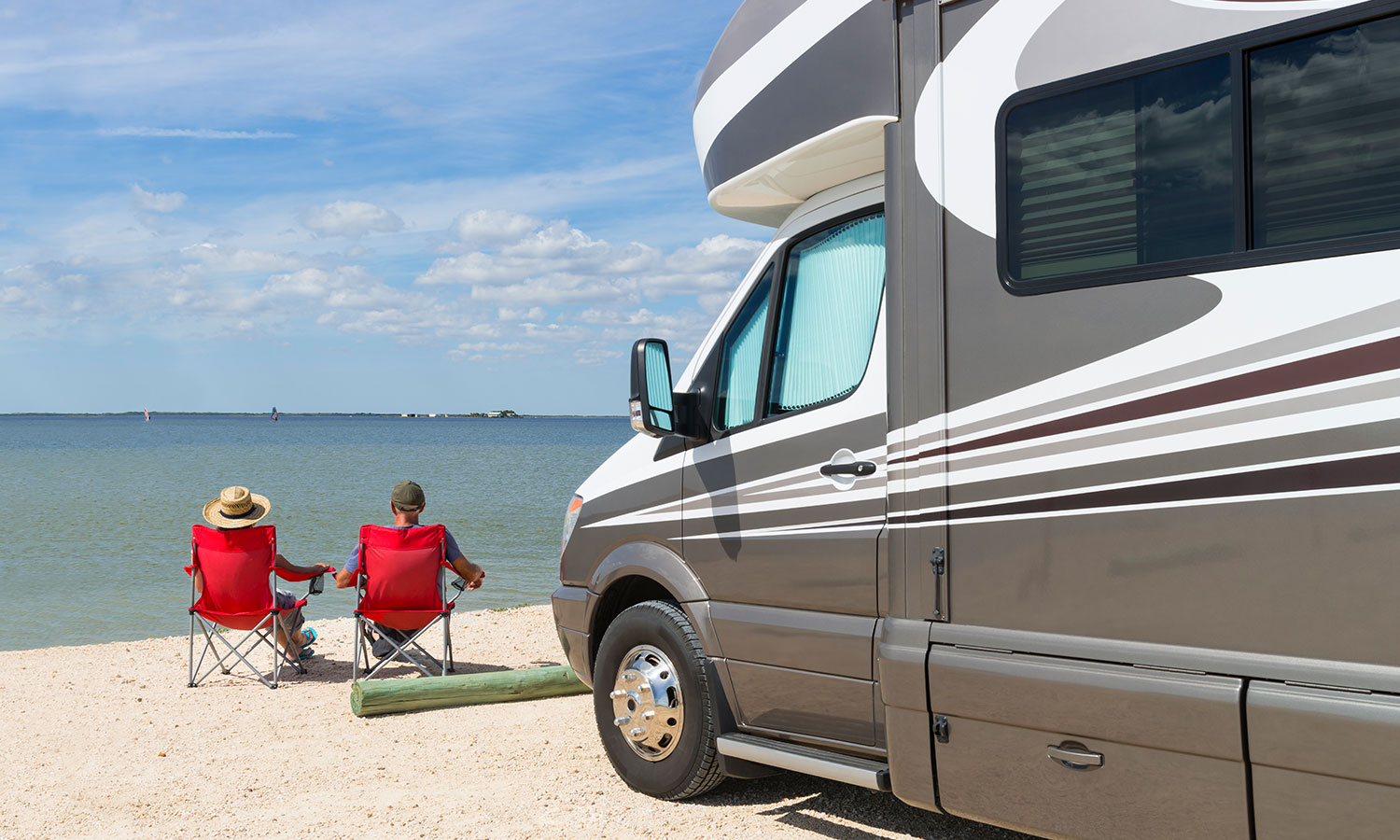Road Trip Safety Tips
Planning a beach trip in your motor home soon — or heading out with friends for a Hill Country motorcycle ride? Whatever your vehicle, we’ve pulled together a few tips that could make for a safer trip.

Start with vehicle maintenance
By keeping up with your vehicle manufacturer’s scheduled maintenance plan, you can help prevent inconvenient breakdowns and accidents. Get a tune-up or vehicle inspection a few weeks before your trip — especially if you have an older vehicle or one with a lot of road wear. This timeline will allow you to make any needed repairs.
In addition to checking belts and hoses, give special attention to the following vehicle fluids:
- Coolant
- Power-steering
- Windshield wiper
- Brake
- Motor oil
- Transmission
You’ll also want to check tire pressure and confirm that your spare tire is in working order.
As an added precaution, confirm that your vehicle isn’t subject to a recent recall and in need of repairs. You can learn if a specific car is part of a recall by visiting the NHTSA website1 and putting in the vehicle identification number (VIN).
» Tip: Traveling in extreme heat? We have additional suggestions specific to that type of journey.
Plan your route
Mapping a route beforehand helps make for a smoother ride.
If you’re journeying as a group, be sure all drivers and riders know the initial meeting point and the ending destination, as well as turn-by-turn directions. Another tip for caravans? Consider including scheduled stopping points along the way. If you become separated from one another, everyone will know where and when they can next meet. Plus, it gives everyone a chance for a restroom or snack break — and a chance to stretch their legs.
Although it’s important to give everyone a chance to refresh themselves, it’s especially important to give the driver (or drivers) a break.
Each November, the National Sleep Foundation hosts Drowsy Driving Prevention Week2 as a reminder to prioritize sleep to increase alertness. Yet fatigued drivers are a year-round danger to themselves and others. In fact, the National Safety Council has compiled an eye-opening collection of statistics3 indicating just how problematic fatigued driving is on our roadways.
» Tip: Whether traveling alone or in a group, don't forget to review your route for bridge clearances that will accommodate the extra height.
Pack essentials and an emergency kit
In addition to having the needed licenses, registration documents and proof of insurance, it’s smart for all riders and drivers to carry a few essential items.
That includes a fully-charged cell phone and charging cord, first-aid kit, cash, rain gear, water, non-perishable food and any tools you may need for the trip. And don’t forget necessary medications!
Consider having someone carry extra items with you that can help in urgent vehicle situations, such as:
- Duct tape
- Road flares
- A flashlight
- Extra water
- A tire pressure gauge
- A compact tire pump
Stay aware and drive smart
Whatever the size of your vehicle, simply staying aware of your surroundings can help prevent accidents. Try to allow enough travel time to your next stop to accommodate traffic slowdowns or other obstacles. Although not foolproof, this may help reduce the pressure to “hurry” while driving.
For group motorcycle rides, the Motorcycle Safety Foundation recommends4 riding in a staggered formation most of the time. Exceptions include curvy roads and low visibility conditions.
Guard against thieves
Another road trip hazard? Burglary. RVs in particular can be targeted by thieves, as they typically contain more valuables (e.g., jewelry, money or small appliances). Whatever your ride, be careful at rest stops and be sure to secure valuables out of sight and behind a lock.
The takeaway
By preparing in advance and creating a road trip that matches the driving skills of everyone you’re with, your crew can enjoy adventures and make memories.
Finally, make sure you’ve got the right insurance coverage in place before your next road trip. RBFCU Insurance Agency can provide you with a policy review or you can request an online quote today.





.jpg?sfvrsn=b6afb2a8_4)